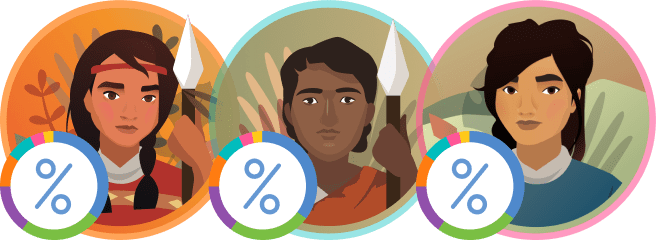Is Autism Caused by Genetics?
In the 1988 movie Rain Man, Dustin Hoffman plays an autistic man with social communication problems. The movie won 4 Academy Awards and greatly raised awareness of Autism Spectrum Disorder (ASD). Genetic science has established a link between genes and social communication problems. This means that we know specific genes are linked to one of the primary symptoms under the ASD umbrella, moving us closer to uncovering the complex genetic bases of the disorder.
While we have long known that ASD has a genetic component, trying to identify a single gene or genes responsible would be like finding the genetic “silver bullet” for cancer. Just like cancer, ASD can manifest itself in too many ways for a simple 1:1 correlation.
The largest study to date – which included 20,000 people with ASD – drew many powerful connections. The study found:
· 70 genes “very strongly” associated with autism
· 250 genes “strongly” associated with autism
This promising study is an example of the astounding progress of genetic science in demystifying our source code, a.k.a. DNA. Someday in the not-too-distant future, we may be able to use genetic knowledge to greatly reduce, or even eliminate, the incidence of autism.
Why Are Autism Rates Rising?
You’ve probably heard that autism is on the rise in the U.S. But many don’t realize just how rapidly these numbers are increasing. According to the CDC, the rate of autism in children has increased several times over:
· 2000: 1 in 150 children = 0.6%
· 2010: 1 in 68 = 1.5%
· 2020: 1 in 36 = 2.7%
If ASD were purely genetic, we would not expect much change in the overall incidence in the population. The rapid increase has led many to look for culprits in the environment, including pesticides, pollutants, and plastics. Research on both environmental and genetic causation creates a reciprocal, complementary relationship: the more we know about one, the more we can deduce about the other.
Will My Genes Show If I Am Autistic?
ASD is diagnosed by physicians based on a wide range of criteria. Because ASD is known to have a genetic component, the doctor will always obtain as much family history information as possible. However, physicians have to be careful about ascribing a disease or disorder based on genetics to a patient who has not exhibited symptomology. The nocebo effect is a well-established (albeit strange) syndrome: if you tell someone they have a disease, they often manifest symptoms – even if the diagnosis was incorrect and they never had the disease in the first place! (This is another good reason to always seek a second opinion when it comes to serious health matters.)
Should I Care if I Have Autism-Related Genes?
Many people will want to know if they have genes correlated with ASD -- even if they have no symptoms. The most obvious reason would be that they might be concerned about passing this gene on to children. Or, they may have a young child and wish to stay vigilant for symptoms. Some restraint is called for: until we truly unpack the genetic mechanisms of ASD – and scientists are likely to do so in the not-too-distant future – this information will be helpful, but very different from an actual diagnosis of ASD. Certainly, many individuals carrying these genes will not be autistic. Carrying genes correlated with a disorder is rarely a condemnation to suffer it. However, arming yourself with genetic knowledge gives you the best information to take steps to optimize your health, given your genetic predispositions.
Can I Find Out If Have the Gene for Social Communication Problems?
You can find out if you have the gene associated with social communication problems, as well as dozens of other traits. All you have to do is obtain your DNA from a provider like Ancestry or 23andme and upload your data to Genomelink for a comprehensive report on your traits.

















